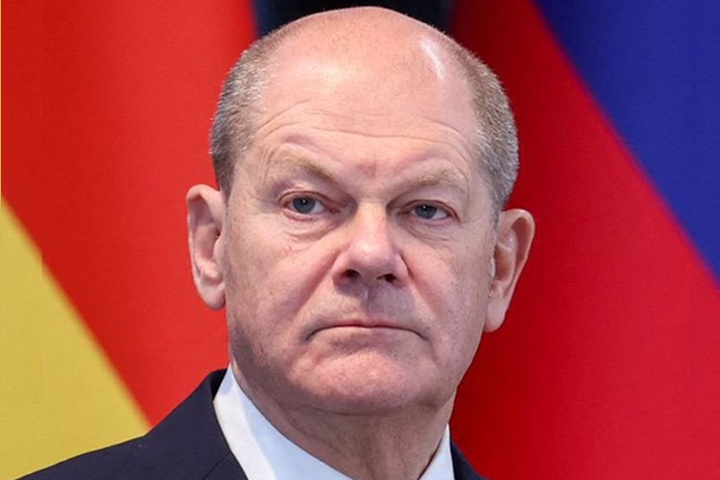The conservative party, under the leadership of Friedrich Merz, has won Germany‘s national parliamentary elections, known as Bundestagswahlen, held on Sunday, February 23, 2025.
The conservative party, an alliance of the Christian Democratic Union (CDU) and Christian Social Union (CSU) defeated Chancellor Olaf Scholz’s Social Democratic Party (SPD).
SPD secured approximately 16% of the vote, marking its worst performance since World War II.
The winning conservative party is currently leading with 29% in the election, while the far-right Alternative for Germany (AfD) at 19.5%, according to ARD exit poll.
Merz grabs 2025 parliamentary election
Germany’s federal parliamentary election took place today, February 23, to elect the 630 members of the 21st Bundestag.
This snap election was called after the collapse of the governing coalition during the 2024 German government crisis.
According to exit polls, CDU/CSU alliance led by Merz is leading, but with its second-worst result ever.

AfD party came in second, achieving a historically high result.
SPD fell to third place, securing less than 20% of the vote for the first time since 1933.
Here are the key parties and their performance:
- CDU/CSU led by Merz: Leading but with a historically poor result
- AfD: Second place with a historically high result
- SPD: Third place with less than 20% of the vote
- The Greens: Declined in vote share
- Die Linke: Reached fifth place
- FDP and BSW: Failed to cross the 5% threshold for parliamentary representation.
The election’s outcome will determine the composition of the next German government and its chancellor.
Bundestagswahlen
The parliamentary elections, known as Bundestagswahlen, typically occur every four years.
The most recent election was held on September 26, 2021. In these elections, voters elect members of the Bundestag, the federal parliament, using a mixed-member proportional representation system.
Key points to note about these elections include:
Political Parties:
Major parties include—
- Social Democratic Party (SPD),
- Christian Democratic Union (CDU),
- Christian Social Union (CSU),
- The Left (Die Linke),
- The Green Party, and,
- The Free Democratic Party (FDP).
Coalition Governments:
Due to the multiparty system, it’s common for no single party to gain an outright majority, leading to coalition governments.
Election Process:
Voters cast two votes—one for a candidate in their local district and another for a political party.
The second vote determines the overall composition of the Bundestag.
Chancellor:
The leader of the party or coalition with the most seats typically becomes the Chancellor after today’s Bundestagswahl.
Merz is expected to be the next German Chancellor.
Outgoing Chancellor — Olaf Scholz

Olaf Scholz is the current Chancellor of Germany, serving since 2021.
As a member of the Social Democratic Party (SPD), he previously held various positions, including Vice Chancellor, Federal Minister of Finance, and First Mayor of Hamburg.
Scholz’s political career spans over four decades, with his early beginnings as a lawyer specializing in labor and employment law.
He joined the SPD in the 1970s and quickly rose through the ranks, becoming a member of the Bundestag in 1998.
As Chancellor, Scholz has overseen significant policies.
These include Germany’s response to the COVID-19 pandemic and the country’s efforts to reduce carbon emissions.
He has also played a key role in shaping the European Union’s economic policies.
This is especially the case during his tenure as Federal Minister of Finance.
Scholz faced challenges, including criticism for his handling of the Wirecard scandal and the CumEx tax fraud.
Despite these, he remains a prominent figure in German politics.
His leadership has been marked by a commitment to social justice, economic stability, and environmental sustainability.
Barring any unforseen occurence, he will be succeeded by Friedrich Merz.







